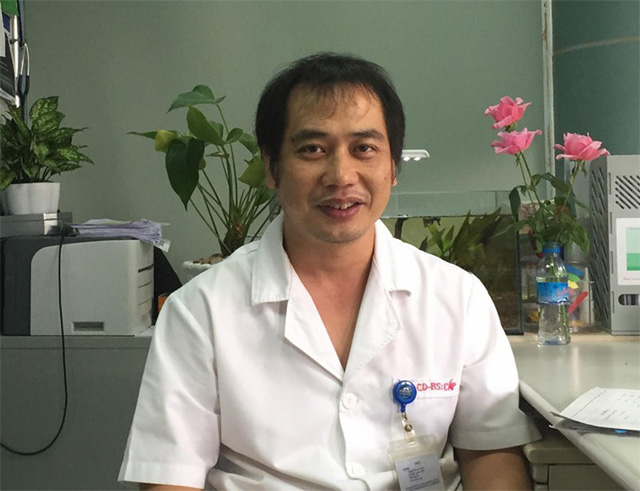 Society
Society


|
| Doctor Nguyễn Trung Cấp, deputy director of the National Hospital of Tropical Diseases. — Photo baochinhphu.vn |
Health experts talk to Sức khỏe&Đời sống (Health and Life) newspaper giving guidance for COVID-19 reinfections to ease residents’ concerns about the issue.
Why do people suffer from COVID-19 reinfection?
Doctor Nguyễn Trung Cấp, deputy director of the National Hospital of Tropical Diseases
Re-positive is when a person with COVID-19 has a prolonged period of having the SARS-CoV-2 virus. Some people can have the virus for weeks. These cases are still positive, but most are no longer capable of causing transmissions after two weeks of infection.
Reinfection is when a patient with COVID-19 has recovered, and then catches COVID again. Everyone has a different immune response. Some people, after being infected or vaccinated, will have protective immunity for a long time. Some others may experience a rapid drop in protective levels, leading to a more rapid re-infection.
If the next infection is caused by a virus strain with different antigenic properties than the previous one, the protection capacity will be lower.
Who is at higher risk of catching COVID-19 for a second time?
Cấp: People with weakened immune systems or low production of neutralising antibodies are at a higher risk of reinfection.
The probability of reinfection may also be higher than those using more effective personal preventive measures.
Can patients who catch COVID again transmit the virus to others?
Cấp: A reinfection patient is a new virus infection. Therefore, they still spread the virus normally and still have the ability to infect others if effective preventive measures are not taken.
How are COVID-19 reinfection patients treated?
Cấp: Cases of reinfection often have a milder clinical course than unvaccinated people who are infected for the first time.
But a certain proportion of patients may have a severe course.
Treatment will be based on the specific disease progression of each patient.
Those with mild symptoms only need to ensure hygiene and nutrition and treat symptoms (if any).
Those who have severe development will be treated according to their pathogenesis and apply resuscitation measures if the patient has a critical condition.
Can patients continue to use Molnupiravir for COVID-19 reinfection?
Associate professor Đỗ Văn Dũng, head of the Public Health Ward under the HCM City University of Medicine and Pharmacy:
COVID-19 reinfection after a short term (within 60 days) is rare and the use of Molnupiravir during subsequent reinfection is entirely possible.
Using Molnupiravir in part reinfections does not cause adverse effects on the body. But, after using the medicine for five consecutive days, we should stop taking it because most of the virus has been destroyed by this time, and the body has also created antibodies to completely destroy the remaining virus in the body.
To achieve the best treatment effect, people should use Molnupiravir under correct medical advice as soon as they test positive and have symptoms.
What should patients do if they take the full dose of Molnupiravir but are still positive?
Dũng: Patients should not worry or find other medicines to replace Molnupiravir because when using the full dose of Molnupiravir, the patients have received the best treatment and their bodies have been able to produce natural antibodies to destroy the remaining virus.
Studies on Molnupiravir said that after using the medicine but still positive for COVID-19, the viruses cannot be live viably. It means that Molnupiravir can kill and inhibit the growth of viruses and what is left is only their corpses. — VNS




